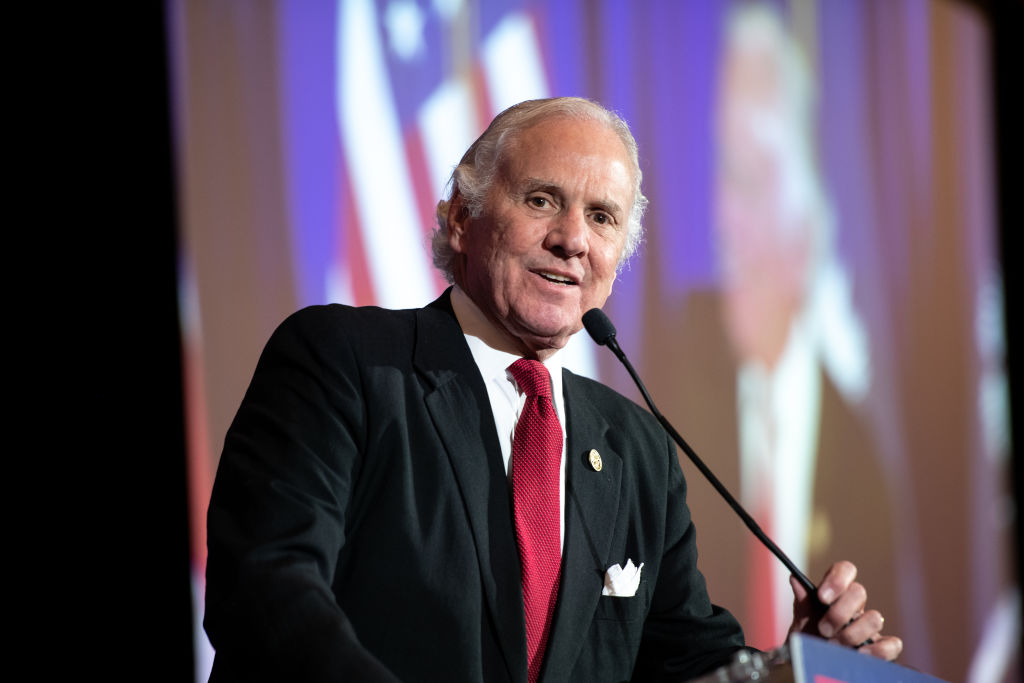
The order allows the parents of students to opt out of mask requirements imposed by school districts, invalidates any local government mask mandates predicated on the governor's Covid-19-related state of emergency and preemptively bars any jurisdiction from making proof of vaccination a prerequisite for receiving government services or entering any public building.
"With the Covid-19 vaccine readily available and case numbers dropping, I will not allow local governments to use the state of emergency declaration as a reason for implementing or maintaining mask mandates," McMaster said in a statement.
"Everybody knows what we need to do to stay safe — including wearing a mask if you're at risk of exposing others — but we must move past the time of governments dictating when and where South Carolinians are required to wear a mask. Maintaining the status quo ignores all of the great progress we've made."
The governor has staunchly opposed imposing a statewide mask mandate throughout the coronavirus pandemic, but had previously allowed local jurisdictions to set their own masking rules.
McMaster's move to curtail mask requirements comes two weeks after he called it "ridiculous" that school districts in the state were still mandating that students wear masks in the classroom.
"We have known for months that our schools are some of the safest places when it comes to Covid-19," the governor said.
"With every adult in our state having the opportunity to receive a vaccine, it goes against all logic to continue to force our children — especially our youngest children — to wear masks against their parents' wishes. Whether a child wears a mask in school is a decision that should be left only to a student's parents."
The state Department of Education, citing US Centers for Disease Control and Prevention guidance, currently requires students and staff in South Carolina public schools to wear a face covering upon entering a school building, while moving through hallways, during pickup and drop-off and when social distancing is not possible.
Education spokesman Ryan Brown said, prior to the governor's order, that the agency would maintain its masking requirement through the end of the school year. It had planned to relax its policy on facial coverings after classes wrapped up next month and leave future masking decisions up to individual districts, he said.
Brown later said the governor's order could potentially impact the agency's plans but declined to speak further until the department's attorneys had more thoroughly reviewed the order.
The order directs state health and education officials to work in concert to develop and distribute a form that parents or guardians may sign if they wish to opt their children out of school masking requirements.
Students who opt out of masking at school will still be required to wear a facial covering on school buses, however, as that is currently required by a federal executive order signed in early February.
The S.C. Department of Health and Environmental Control, whose top officials have spoken out in support of local mask mandates and masking in schools, did not immediately respond to a request for comment on the governor's order.
The CDC recently loosened its guidance on mask wearing for fully vaccinated people, but continues to recommend that all people, even those who are vaccinated, wear masks in indoor public settings and when visiting indoors with unvaccinated people from multiple households.
Brown said if the state health agency were to change its guidance on facial coverings in response to the governor's declaration, Education officials would follow suit.
In addition to giving parents the ability to opt out of their public schools' mask requirements, the governor's order also prohibits any South Carolina county or municipality from relying on prior orders or the state's pandemic-related state of emergency as the basis for a local mask mandate.
It remains an open question whether local governments have the ability to enact their own mask mandates, the governor's spokesman said, but Tuesday's order rescinds any authority the governor had expressly granted counties and municipalities previously to enact emergency measures such as narrowly-tailored local mask ordinances.
McMaster spokesman Brian Symmes said cities and counties may find some new justification for imposing mask requirements, but that any prior mandates predicated on the governor's state of emergency are no longer valid.
Six South Carolina counties and 40 municipalities, including Columbia, which extended its mask ordinance on Tuesday, currently have mask mandates in place, according to the South Carolina Emergency Management Division. That's down from 12 counties and 42 municipalities in March, EMD spokesman Derrec Becker said.
Lexington-Richland 5 School District last week became the first district in the state to buck the state Department of Education's masking guidance. Starting Tuesday, students and staff in that district are "strongly encouraged," but not required, to wear masks at school.
Education spokesman Ryan Brown said all districts, with the exception of Lexington-Richland 5, continued to mandate mask wearing as of Tuesday morning.
While no public jurisdiction in South Carolina currently requires people to present so-called "vaccine passports" to gain entry, McMaster's order also bans local governments, state agencies and state employees from mandating that people present proof of vaccination to obtain government services or gain access to any government building, facility or geographic location.
"Vaccine passports will have no place in South Carolina," the governor said recently. "The very idea is un-American to its core."












